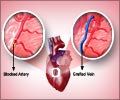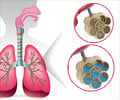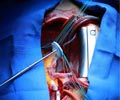- Congenital Mitral Stenosis With or Without Associated Defects - (http://circ.ahajournals.org/cgi/content/full/102/suppl_3/III-166)
- Mitral Stenosis - (http://www.emedicine.com/med/topic1486.htm)
- Hospitalization statistics for Mitral valve disease: - (http://www.wrongdiagnosis.com/m/mitral_valve_disease/stats.htm#medical_stats)
- Congenital Mitral Stenosis - (http://www.emedicine.com/ped/topic2517.htm)
- Mitral valve regurgitation - (http://www.nlm.nih.gov/medlineplus/ency/article/000176.htm)
- Heart & Vascular Institute (Miller Family) - (http://www.clevelandclinic.org/heartcenter/pub/guide/disease/valve/mvrepairfaq.htm)
After Mitral valve replacement
Patients will be moved to a postoperative care or Intensive care unit to be carefully monitored. Each patient recovers differently. Anxiety and pain medications will be given along with the regular medications.
Ventilator will be removed usually after a day when the patient is awake and breathes on his/her own without difficulty.
Chest tubes also will be removed once the fluid/blood drainage stops.
IV lines will be connected for medications. Chest leads and a blood pressure cuff will help monitor the hemodynamic stability and this will be regularly recorded in the notes. Transfer from ICU will happen usually in one to two days when the doctor determines the patient is stable.
Rehabilitation process helps speedy recovery. The total hospital stay usually lasts less than two weeks.
The total time for full recovery can vary and can be as much as 6-8 weeks. Once the wound heals, there will be no restrictions to daily activities. Patients with physically demanding jobs should check with their doctors before returning to work.
As far as possible direct injury to the chest should be avoided. Scarring process may cause some itching, numbness and redness. Proper wound care is necessary. Signs of infection like fever or pus needs immediate medical attention. Application of any lotions or creams on the incision site should be avoided to prevent infection.
Involvement in an exercise program is recommended. The amount of exercise should be increased progressively to improve strength. Lifting weights is restricted until the breastbone is healed completely.
Signs of fluid retention like swollen ankles/legs, shortness of breath and weight gain should be reported to the doctor immediately.
Antibiotics as prophylaxis are required before any other surgeries or dental procedure. This prevents infection to the heart valve, which is called prosthetic valve endocarditis.
Patients with bioprosthetic valves are required to be on anticoagulation therapy like Coumadin for 2-3months. Patients with mechanical valves need to be on an anticoagulant throughout their lifetime. This keeps the blood thin and prevents clot formation in the heart. Initially, patients on Coumadin will be required to have blood draw every week to optimize the dose. Later on they will have these tests every 3 weeks to maintain the dosage. This test is called INR or International Normalized Ratio. It assesses clotting and bleeding factors in blood.
- Green leafy vegetables,
- Green tea,
- Beef
Medications such as aspirin can increase the INR. Dietician and doctor can guide the patients about these restrictions.















